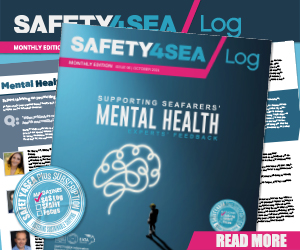The Union of Greek Shipowners applauds the progress made by the Marine Environment Protection Committee (MEPC 74) of the United Nations International Maritime Organization (UN IMO) with regard to the issues related to the challenges stemming from the implementation of the new 0.5% sulphur limit on marine fuels.
According to the President of the UGS, Mr. Theodore Veniamis
We are very pleased to see that the UN IMO is making significant progress in terms of addressing a number of important and unforeseen problems with regard to the global 0.5% sulphur cap regime only months before the commencement of its implementation and enforcement.
He continued that although there’s still a responsibility on shipowners and operators to find the solutions on the matters discussed during the MEPC 74, they at least have some tools in which will help towards achieving a smoother implementation process.
In addition, Mr Veniamis commented
Regarding the Green House Gas emissions reduction roadmap, it is now recognised that the modus operandi of bulk / tramp shipping requires the adoption of prescriptive short-term measures in order to substantially involve vessels’ charterers. The proposal submitted by Greece and fully supported by the UGS is now part of the IMO’s list of short-term measures due for further consideration
The Greek shipowners were amongst the first ones to highlight the challenges of the 2020 sulphur cap; Therefore, they will continue contributing with their experience on the important work that is still being conducted at the UN IMO and the upcoming critical Maritime Safety Committee meeting.
Mr Veniamis added
The UN IMO should be especially commended for giving precedence to safety and environmental protection over formal compliance and commercial considerations on these crucial issues for shipping, world trade and a sustainable environment, ensuring that any uncertainties and deficiencies of the new regime will not be turned into excuses for distortion of competition.
Concluding, MEPC 74 made progress towards a robust data collection system, adopted the revised template on the Fuel Oil Non-Availability Report (FONAR) in the 2019 Guidelines for consistent implementation of the 0.5% sulphur cap on marine fuels in the light of operational and safety considerations and gave due consideration to a pragmatic approach by Port and Flag States of vessels’ non-compliance due to reasons beyond their control. MEPC 74 also embraced the proposal for inclusion of a new output in the Committee’s work programme on evaluation and harmonization of rules and guidance on the discharges of Exhaust Gas Cleaning Systems (EGCSs) into waters and potentially the assessment of the overall “equivalency” of these systems.

































































